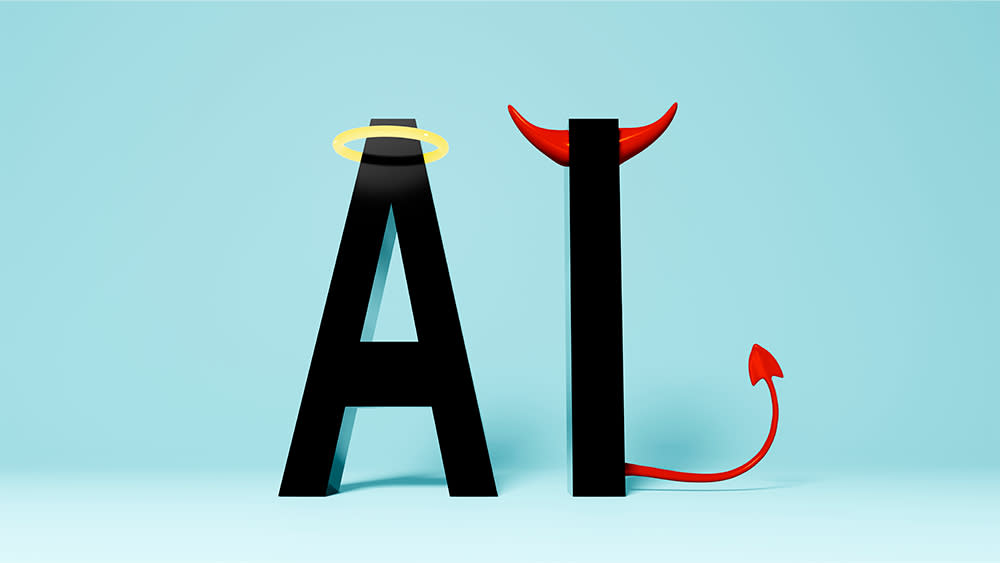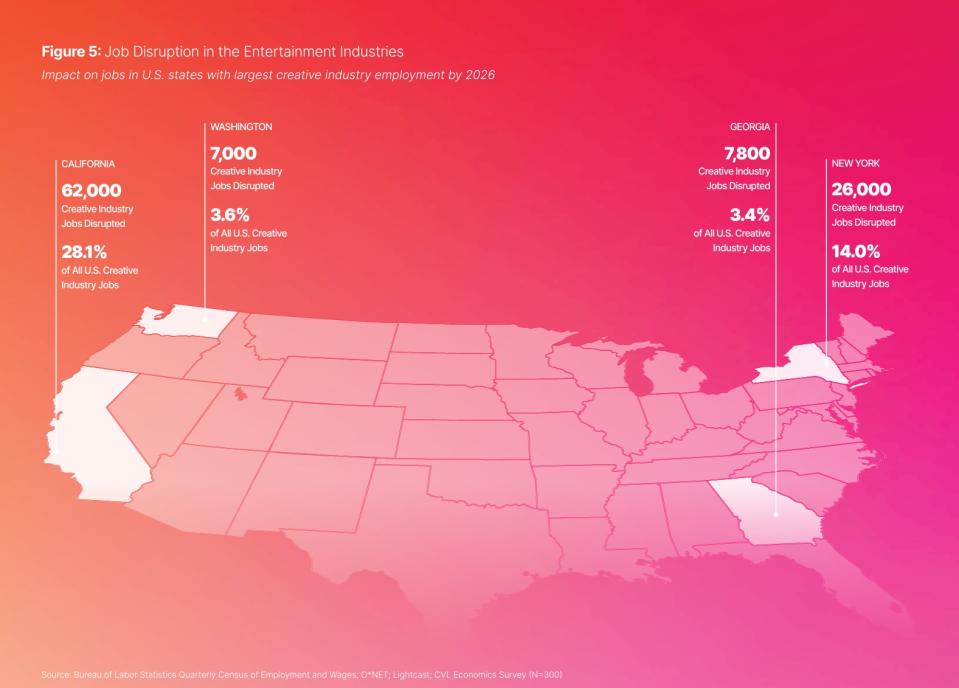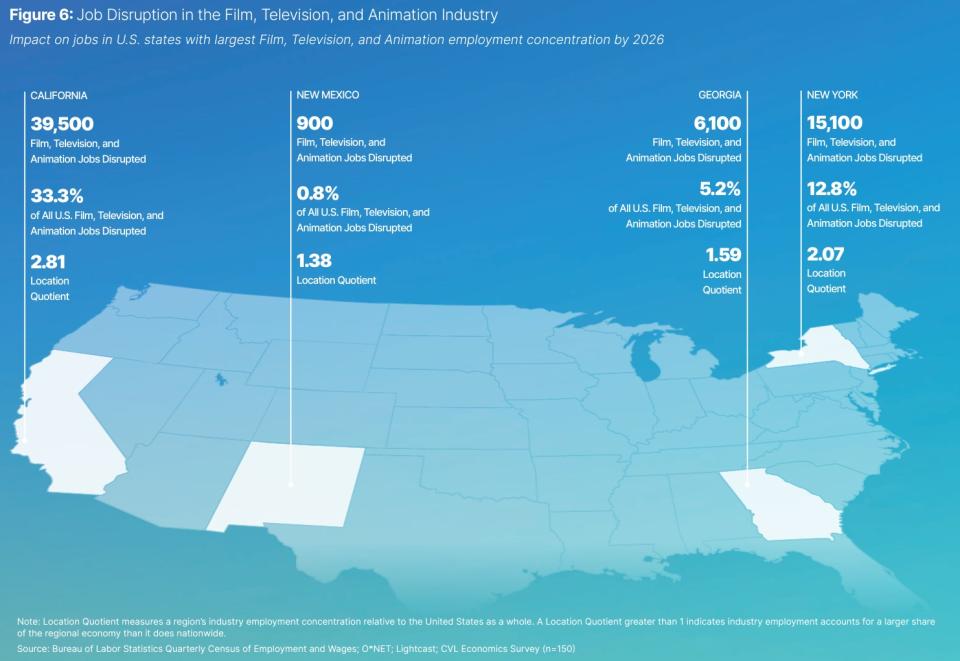These are the jobs Hollywood bosses think AI will replace

Generative AI is causing a lot of disruption in creative sectors. For some people, it's helping them to do the most tiresome parts of their jobs faster, but it's also started to replace some jobs entirely, and that extends to Hollywood.
A new study commissioned by a quartet of arts organisations surveyed 300 executives, producers and mid-level mangers to reveal how some of the most powerful people in the entertainment industry think generative AI will affect their HR needs. The results make for sobering reading while shedding light on the roles in film, TV and gaming that could be most impacted.

AI played a role in the writers’ and actors’ strikes in Hollywood last year. However, the survey suggests that those jobs are among those that will be least affected by AI in the coming years (although the agreements reached after the strike perhaps influenced the execs' thinking here).
Instead, the jobs highlighted as most vulnerable are in 3D modeling, character and environment design, voice generation and cloning and compositing. These are followed by sound design, tool programming, script writing, animation and rigging, concept art/visual development and light/texture generation.
Around a third of respondents expected AI to displace 3D modelers, sound editors, re-recording mixers and broadcast, audio and video technicians by 2026. A quarter thought that sound designers, compositors and graphic designers would also be affected. A comparatively low 15 per cent mentioned storyboard artists, illustrators, animators and look, surface and material artists.
It's perhaps surprising, and concerning, to see 3D modeling featuring so highly when generative AI abilities in 3D are still relatively limited. But this was also the area the study found to be most vulnerable in the gaming industry, along with concept art/visual developing, followed by character and environment design, sound design, tools programming and voice generation and cloning. Some 20 per cent believed 3D artists, game designers, UI/UX designers and video game testers could also lose their work.
The survey makes for stark reading for sound designers in the music industry too, with 50 per cent of respondents expecting job losses in this area. Some 40 per cent expected disruption for music editors, audio technicians and sound engineers.
The report suggests that 62,000 entertainment jobs in California and a further 204,000 across the US as a whole will be affected in the next three years alone, with entry-level positions most vulnerable. Three quarters of those surveyed said AI had already led to the elimination, reduction or consolidation of jobs in their area.
Is there any good news? Most survey participants said AI has created and will continue to create new job opportunities. However, it’s not clear if these roles will be relevant to the people whose jobs disappear.

The study was undertaken in the US by the consulting firm CVL Economics, commissioned by the Concept Art Association, The Animation Guild, The Human Artistry Campaign and The National Cartoonists Society Foundation. The Animation Guild, which has expressed concerns about the threat of AI, says it intends to use the results of the study to inform its bargaining strategy.
